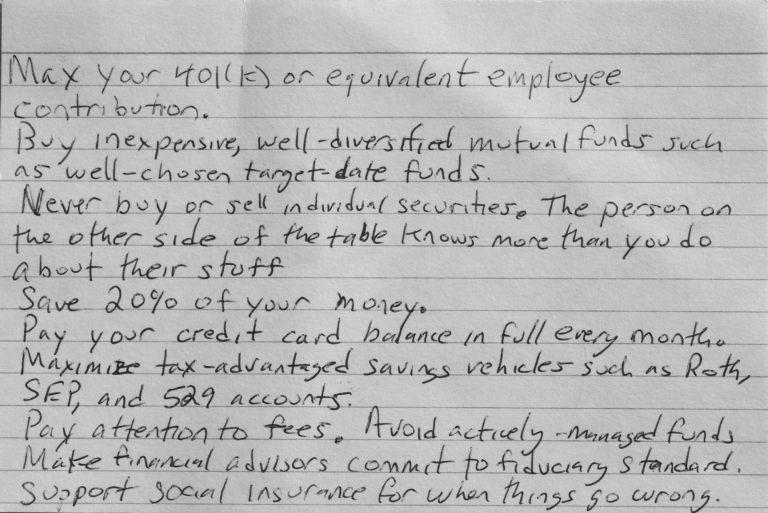“Trust no one,” is a saying that you have probably heard in life. Yet, it’s hard to get through life without trusting people. Moreover, it’s almost impossible to get through life without trusting various yet impenetrable financial infrastructure systems. Think about it. We trust banks, credit card companies, and credit history bureaus with our most private information.
Yet, how much do they trust us? If you buy something out of the ordinary relative to your purchase history, your credit or debit card might get frozen as a precaution. It’s a great security measure until you spend two days trying to get it unfrozen. My point is that we pay and trust financial systems that regularly treat us as though we are criminals to prove that they are keeping us secure.
The Federal Trade Commission processed over 1.4 million complaints of identity theft and scams involving stolen personal data. Over $1.4 billion dollars were lost through these scams. It seems that no one can protect people fully from the threat of identity theft. Not even the security systems of a major credit history bureau.
The Outrageous Equifax Hack
Equifax is a credit scoring and history bureau, along with TransUnion and Experian, that assigns credit scores among other services. Unknown hackers infiltrated Equifax’s data systems and stole the information of over 150 million people in July 2019. Equifax did not reveal that the hack occurred until a month later.
Even now, this incredible crime and breach of trust does not get the reporting it deserves. Over 56% of Americans had their information stolen in the hack. A federal website to file claims can tell you if your information has been compromised. I checked it myself and found out my own personal information was exposed in the Equifax hack.
What does this mean to you? Well, it means that there is a better than 50/50 chance your personal credit and financial information has been compromised by a credit bureau that should have protected it.
The Claims Process
Equifax will pay about $700 million to people affected by the hack. There are no official investigations as of yet and Equifax has not fully explained what happened. You can claim about $500 if you can prove that you spent a lot of time dealing with the consequences of the hack and lost money.
You can claim $20,000 if you can prove you endured fraud and hardship due to the hack. However, you will have to maneuver lots of bureaucratic red tape and provide lots of proof, receipts, records, and documentation to prove your side of the story. Even then, its highly unlikely you can get a lot of money from Equifax since millions of people are making claims.
The FTC is advising people to take Equifax’s offer of ten years of credit monitoring, six free credit reports per year, and identity theft insurance worth about $1 million dollars. Because so many people are making claims, there is no chance you’ll even get the minimum $125 claim.
Trust is Hard to Earn
You have until January 22, 2020 to lodge a claim against Equifax. If you can prove hardship due to the hack, or just want the enhanced credit monitoring, you should file a claim. If too many people file a claim, a class action lawsuit might force Equifax to offer more money. There should be consequences for a massive credit bureau betraying the public trust in such a manner.
Read More
These Simple Actions Help Safeguard Your Credit Information
5 Ways to Boost Your Credit Card Rewards
Understanding the Concept of Credit Card Churning

Allen Francis was an academic advisor, librarian, and college adjunct for many years with no money, no financial literacy, and no responsibility when he had money. To him, the phrase “personal finance,” contains the power that anyone has to grow their own wealth. Allen is an advocate of best personal financial practices including focusing on your needs instead of your wants, asking for help when you need it, saving and investing in your own small business.


 Trying to fix a bad credit score can lead many people to seek advice from credit repair companies. Most of those companies appear completely professional and make claims about clearing your bad credit listings from your credit file.
Trying to fix a bad credit score can lead many people to seek advice from credit repair companies. Most of those companies appear completely professional and make claims about clearing your bad credit listings from your credit file. Are you born with a credit score?
Are you born with a credit score? According to data from the Corporation for Enterprise Development (CFED), 56 percent of American consumers have credit scores that are rated “fair” or “poor.” Consumer with low credit scores are often required to pay much higher interest rates for loans and credit cards and higher premiums for insurance. They may also be disqualified for certain types of job and housing opportunities. Keeping your credit score as high as possible is very important in today’s society. If you have already damaged your credit, you can fix bad credit fast with these simple tips.
According to data from the Corporation for Enterprise Development (CFED), 56 percent of American consumers have credit scores that are rated “fair” or “poor.” Consumer with low credit scores are often required to pay much higher interest rates for loans and credit cards and higher premiums for insurance. They may also be disqualified for certain types of job and housing opportunities. Keeping your credit score as high as possible is very important in today’s society. If you have already damaged your credit, you can fix bad credit fast with these simple tips.

